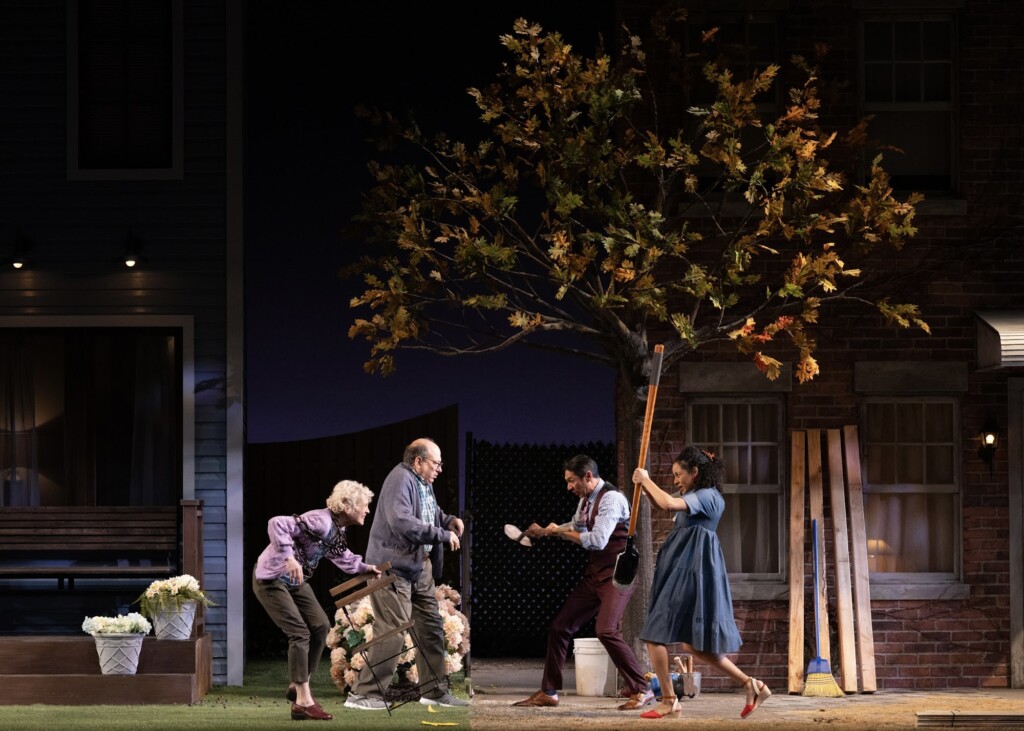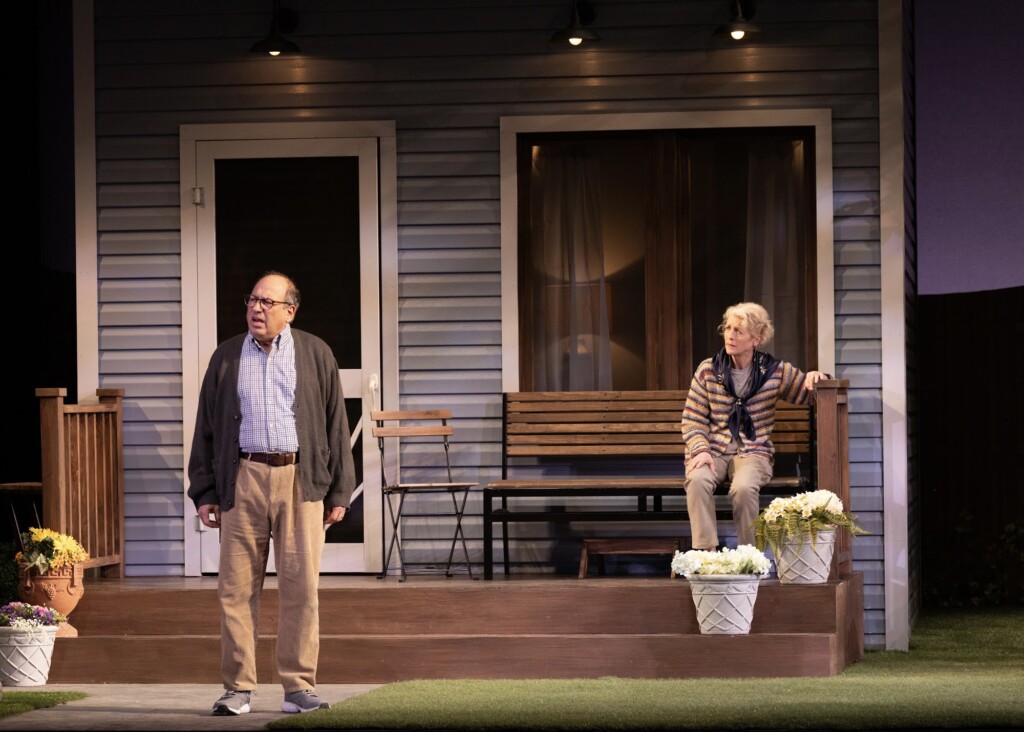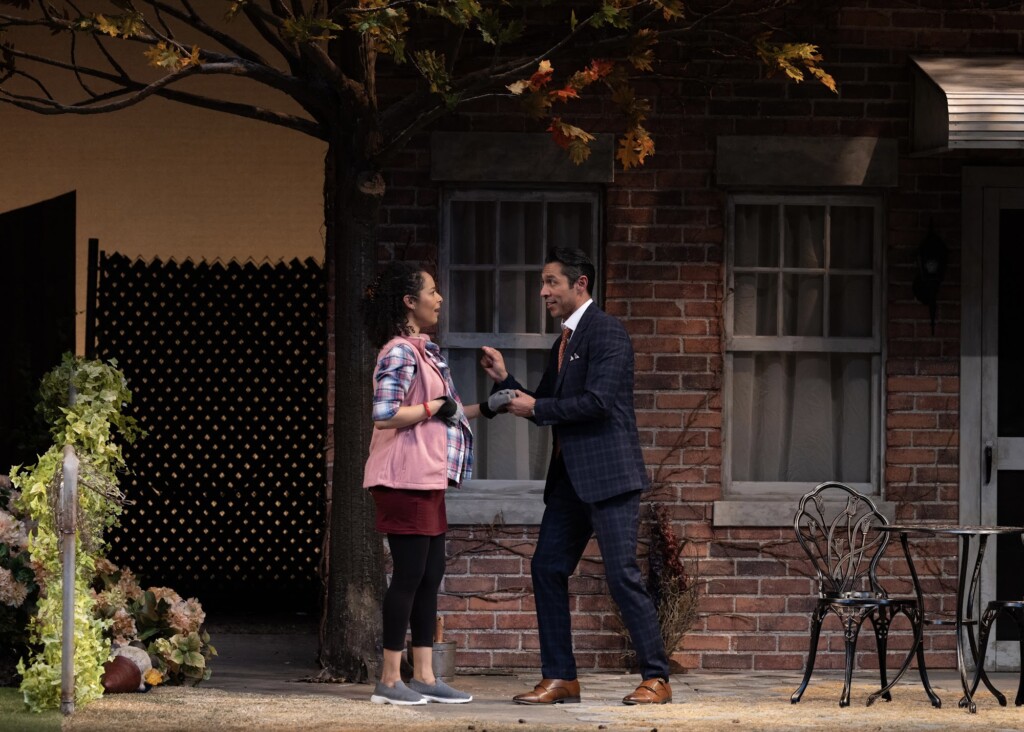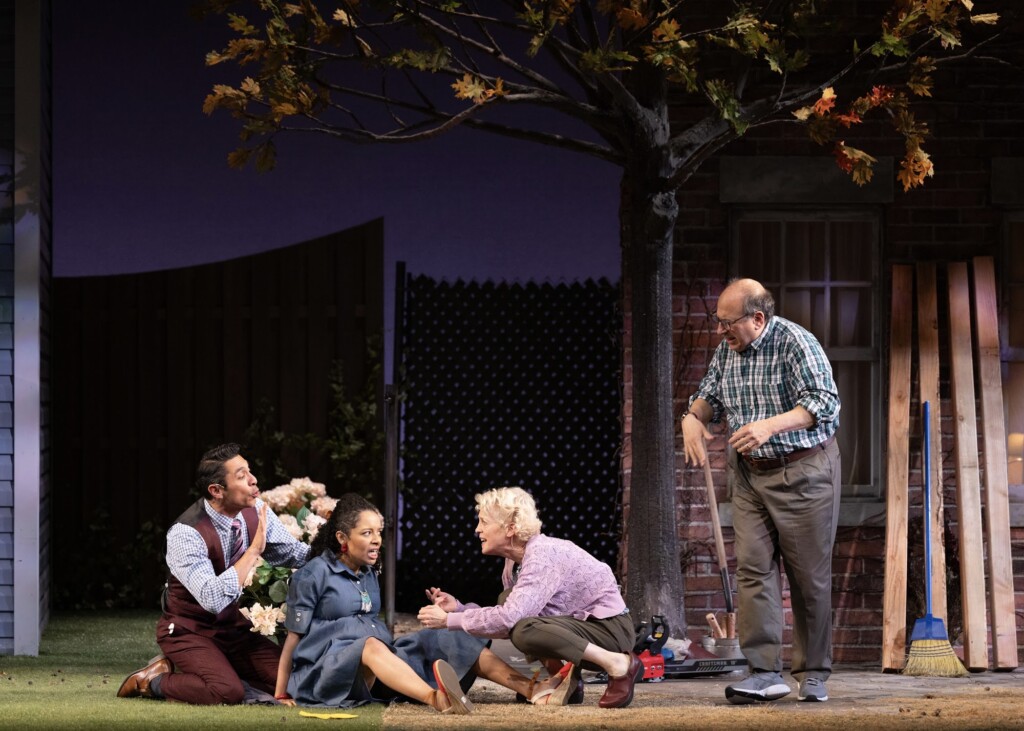The trials and tribulations of neighbors, especially involving property line disputes, have been among the most widely applied tropes in practically every television sitcom series since the 1950s. Many of these scenes have followed the tenets of “Hollywood Law,” which carves out the spaces for acceptable breakaways from reality.
There also have been a handful of reality shows that deal with such disputes, including Neighborhood Wars on the A&E channel. Instead of re-enacting disputes, producers for that series have relied on footage from smartphones, drones and home security cameras, along with interviews of the neighbors and witnesses who were involved with the disputes.

But, in Karen Zacarias’ magnificent one-act chamber ensemble play Native Gardens, the property dispute at the center of this eminently intelligent comedy becomes a question of adverse possession (or, as the play hilariously references, “squatter’s rights”) and the importance of the statute of limitations as it applies to property law. Instead of the classic “womp womp” and “snapback” of classic sitcoms, Zacarias offers a more satisfying and instructive resolution that hits at the play’s significant and timely themes of cultural and sociopolitical values.
Just as satisfying is the splendid display of chamber theater ensemble acting in the whip-smart Utah premiere production of Native Gardens, presented by Pioneer Theatre Company (PTC). Directed by Timothy Douglas, the production gallops at a firecracker pace, with each actor polishing their timing and delivery to perfection.
The property dispute in Native Gardens is framed with themes embodying much larger societal stakes: immigration, sustainable environmental practices, the ramifications of unintentional and accidental racism and how our origins and the ways in which we claim them define and influence our identities, both in how we affirm ourselves and how we expect others to see and accept us.

Photo Credit: BW Productions.
Coming from an older generation, Frank and Virginia Butley (Michael Kostroff and Kelly Coffield Park, respectively) are enjoying the fruits of their long professional careers, by making an appealing showcase of their Washington, D.C. home. Frank tends to his garden meticulously, which he considers his best escape from the stresses of working for the U.S. General Services Administration. Frank is determined to win the honors for best garden from the Potomac Horticultural Society. Virginia is proud of her Polish-American heritage and her accomplishments in breaking through the glass ceiling as a defense engineering contractor for Lockheed Martin.
At first, the Butleys are thrilled to see their new neighbors, Tania and Pablo Del Valle (Katya Collazo and Tito Livas, respectively), a Latinx couple in their thirties who are looking forward to the birth of their first child. The home is a fixer-upper and Tania, who is rushing to complete her dissertation for a Ph.D. in anthropology before the baby arrives, dreams of planting a ‘native garden’ with plants that are indigenous to the local environment. A native of New Mexico, Tania is a Nuevomexicana while Pablo, her husband, is a native of Chile. He is a rising star at his law firm who has ambitions of becoming a partner and seeing his name on the firm’s letterhead. With this goal in mind, he surprises Tania with news that he has invited everyone to their new home for a barbecue, just days away despite they have still not begun renovations.

Photo Credit: BW Productions.
That is when the matter of the fence separating their properties pops up in the script. The Butleys are thrilled that Del Valles have decided to replace the shabby chain-link fence with a proper wood border. But, when Tania and Pablo are in the midst of deciding their landscaping plans, they discover that the property line actually extends two feet to their advantage. The dilemma is that while the Del Valles have a viable legal claim to the property, moving it two feet would essentially ruin Frank’s carefully manicured garden right before the community association is set to judge it.
The pleasant camaraderie of neighborhood relations crumbles quickly, as the Butleys and Del Valles exchange volleys that ring with disturbing realism in how they echo so closely the pitch and tone of current news headlines. Zacarias, who is among the top 10 of the most produced playwrights in the U.S., wrote the play well before the Trump Administration accelerated plans to build a U.S.-Mexico border wall. In 2024, with anti-immigration rhetoric taking on even more negative tones ahead of the primary season for the upcoming national elections, Native Gardens is that much sharper in its relevance in its sociopolitical zeitgeist.
The cast for this PTC production excels in expressing the symbolism of how the squabble over a disputed 80-square-foot section of property in a decent Washington, D.C. neighborhood can epitomize the emotional drama arising from strident conservative expressions of nationalism to protect against the diversification of culture and identity in local communities. PTC’s outstanding production of Zacarias’ Native Gardens becomes a perfect companion to last season’s superb world premiere production by PTC of Kareem Fahmy’s A Distinct Society.

The fear of the stranger sentiment is prominent in both plays. Just as Fahmy’s script had the capacity to inspire post-performance discussions about the issues and questions raised in a southeastern Quebec community near the U.S. border, Zacarias’ Native Gardens opens the path just as effectively, with characters in a charming Washington, D.C. neighborhood, who are recognizable and accessible to audience members who likely have experienced their own neighborhood dispute, regardless of whether it was small or large, serious or absurd.
While Native Gardens with its bristling comedy vividly portrays how quickly neighbors who barely have known each other can escalate rapidly to becoming aggrieved combatants, it also reveals that resolving a dispute before it goes completely out of hand is possible. That is, it does not have to be about winning the argument or proving that one party was absolutely right and the other was wrong. The prudent epiphany is wise for the contemporary moment.
The production continues through Jan. 27. Performances in the Simmons Memorial Pioneer Theatre are Mondays through Thursdays at 7 p.m., Fridays and Saturdays at 7:30 p.m. and 2 p.m. matinees on Saturdays. For more information, see the Pioneer Theatre Company website.
